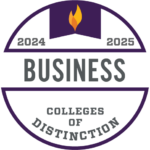EC 111 – Economic Analysis of Social Issues 3 hrs.
Economic forces lie at the root of many social problems. Furthermore, many social problems arise because of the incompatibility of individual incentives and social outcomes. Students in this course will be encouraged to think about everyday events in an economic fashion. This course begins by developing in the student a few fundamental tools of economic analysis and continues on to apply those tools to current problems discussed in economics as well as other academic disciplines, paying particular attention to the role of government in solving or creating social problems.
EC 151 – Applied Game Theory 3 hrs.
This course examines strategic choice problems by introducing students to solution techniques for sequential and simultaneous games, development of pure and random strategies, and the concept of equilibrium. We will then apply our solution techniques to problems within economic, social, political, and biological sciences including coordination and collective action problems, voting strategies and coalitions, and the process of evolution. Prerequisite: An ACT math score of 22 or higher or MA 090.
EC 242 – Principles of Economics: Micro 3 hrs.
This course is an introduction to economic analysis of market economies. Topics include scarcity and choice, price and output determination, market power, and wages and employment. Evaluating the effects of government policies is emphasized. Prerequisite: An ACT math score of 22 or higher or MA 090.
EC 243 – Principles of Economics: Macro 3 hrs.
This second course in the Principles sequence studies how total economic output (gross domestic product), price levels, and employment are determined and the impacts of fiscal policy, monetary policy, and international developments. The economic functions of money and financial markets are introduced. Prerequisite: EC 242.
EC 340 – Economics of Sports 3 hrs.
The purpose of this course is to provide students an opportunity to expand upon models, terminology, and concepts first introduced in the Principles-level curriculum. Students will use these analysis tools to examine specific issues related to the business of amateur and professional sports in the United States and around the world. Prerequisites: EC 242 and junior status.
EC 344 – Money and Financial Institutions 3 hrs.
The first half of this course studies the role of money and financial markets in a capitalist economy, including the money supply process. The second half covers monetary theory and aggregate price and output determination. Prerequisites: EC 242 and 243.
EC 346 – Managerial Economics 3 hrs.
This course is designed to allow students to improve their economic reasoning skills. Microeconomic theory is taught by application to real-world economic problems. Prerequisite: EC 242; BS 330 or MA 321.
EC 347 – International Trade 3 hrs.
This course addresses both the economic theory and government policy of trade. Important concepts and issues include comparative advantage, factor endowments, fairness vs. efficiency, and trade policy instruments, including subsidies and tariffs. Prerequisite: EC 242 and 243.
EC 350 – Intermediate Macroeconomics 3 hrs.
This course studies theories of the business cycle and inflation. Differences between Keynesian, classical, neo-Keynesian, and real business cycle models are studied, and implications for macroeconomic policy are derived. Prerequisite: EC 243.
EC 360 – Labor Economics 3 hrs.
This course is an economic analysis of labor markets and institutions. Microeconomic concepts of labor supply and demand are applied to the determinants of wages and employment, the economic impacts of trade unions, welfare policies, occupational safety and health regulations, discrimination and comparable worth policies, and the economics of pensions and fringe benefits. Prerequisite: EC 242.
EC 390 – Economics Internship 3-6 hrs.
If taken as a 3-credit-hour experience, this course involves completing at least 120 clock hours and at least eight weeks in a professional work setting where the student has the opportunity to observe and participate in an organization’s activities. The student’s work experience will be under the supervision of a faculty sponsor and will be designed to provide a practical experience in the field of economics. Credit earned in this course will count toward the maximum of 12 credit hours of internship credit a student may earn during their experience at Baker. Both the faculty sponsor and the Director of Career Services must approve the academic relevance and suitability of the student’s work experience. P/NC. Prerequisites: EC 242 and EC 243; permission of the instructor.
EC 400 – Applied Econometrics 3 hrs.
Quantitative methods for economic research are introduced in this class. The primary focus is on testing empirical issues with multiple regression techniques. The classical least squares model is presented and applied using PC software packages. This course emphasizes understanding when to apply regression techniques, interpretation of statistical results, and sources of potential biases. Prerequisites: EC 242 or 243; BS 330 or MA 321.
EC 450 – Industrial Organization 3 hrs.
This seminar examines the ways firms and markets are organized, exploring how various types of market structures affect firm behavior, and, in turn, how firm behavior affects the structure of markets. Topics include entrepreneurship, small vs. large firms, mergers and acquisitions, shareholders vs. stakeholders, and the ethics of competition. Prerequisite: EC 242.
EC 463 – International Finance 3 hrs.
A macroeconomic approach to the study of global markets is taken in this course. Specific topics and concepts examined include balance of payments, exchange rate systems, the World Bank, the IMF, international banking, and the European Union. Prerequisites: EC 242, 243, and BS 381. (Cross-listed as BS 463.)









